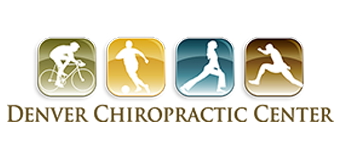Dr. Stripling’s 3 more for the core, Race season 2013, and this week’s 1-Page Health News.
This week, we have another video for you on core exercises. Dr. Stripling shows three basic exercises that will strengthen and condition the entire body. As simple as these movements seem, there are a few cues to keep in mind to improve both safety and performance. Check it out with the link below.
For those who race, triathlon / cycling / running season are swinging into full gear right around now. Dr. Hyman’s race schedule for 2013 is looking like this:
- June 1, Xterra Lory, Horsetooth Reservoir
- July 20, Xterra Beaver Creek, Avon / Beaver Creek
- August 17, Rattlesnake Olympic, Aurora Reservoir
- August 24, Xterra Buffalo Creek
Stay tuned for Dr. Stripling’s Event schedule, which he says will include some CrossFit Competitions and some Century rides.
Mental Attitude: Smoking and Anxiety. The belief that smoking relieves stress is pervasive, but likely wrong. Smoking is actually anxiogenic (causes anxiety) and successful quitters usually experience a drop in anxiety.
British Journal of Psychiatry, January 2013
Health Alert: Obesity and Stroke: In males and females ages 5-14, the number of ischemic stroke hospitalizations increased 31% and 36%, respectively, from 1994 to 2007. For ages 15-34 the increase was 51% for males and 17% for females. For ages 35- 44, the increase was 47% for men and 36% for females. The increase in obesity seems to be the primary cause.
CDC, February 2011
Exercise: Aerobic or Resistance Training? A study of 234 adults compared the effects of aerobic training (AT), resistance training (RT) and both aerobic training and resistance training (AT/RT). Researches found the participants in the AT/RT group both increased lean mass (muscle) and decreased body fat, while the RT group did not decrease body fat, and the AT group did not increase lean mass. Journal of Applied Physiology, December 2012
Active Release / Chiropractic: Pregnancy and Back Pain. 20% of women who suffer from severe back pain during pregnancy refrain from having more children out of fear their severe back pain would recur with another pregnancy. Just for the record, WE treat pregnant women using both Active Release and gentle adjustments. Back pain and sciatica are the most common complaints. Obstetrics & Gynecology, February 1998
Wellness/Prevention: How Are You Doing This Year? Only 8% of people succeed in achieving their top New Year’s
Resolution. Journal of Clinical Psychology, December 2012
Quote: “Leave all the afternoon for exercise and recreation, which are as necessary as reading. I will rather say more necessary because health is worth more than learning.” ~ Thomas Jefferson

